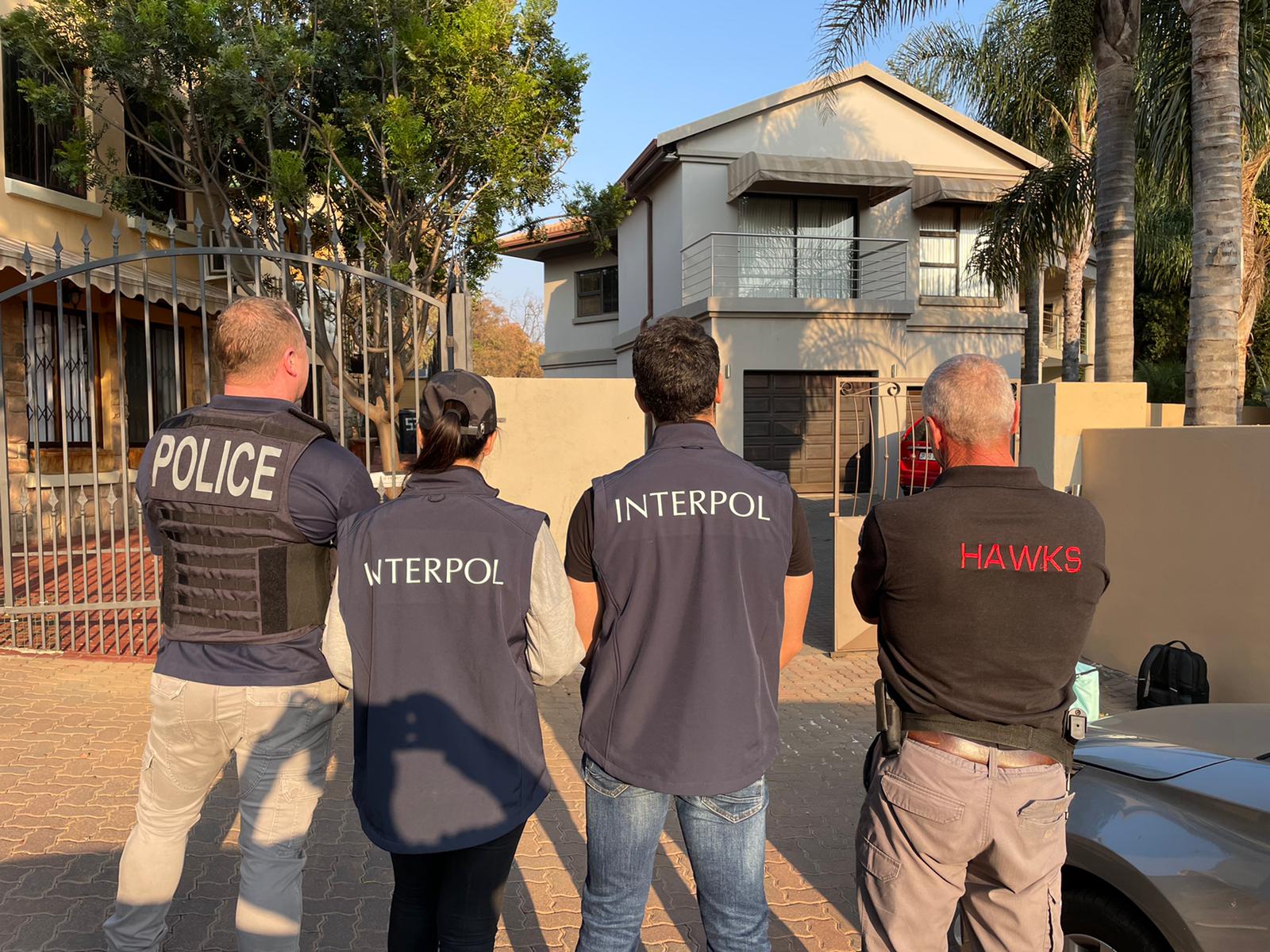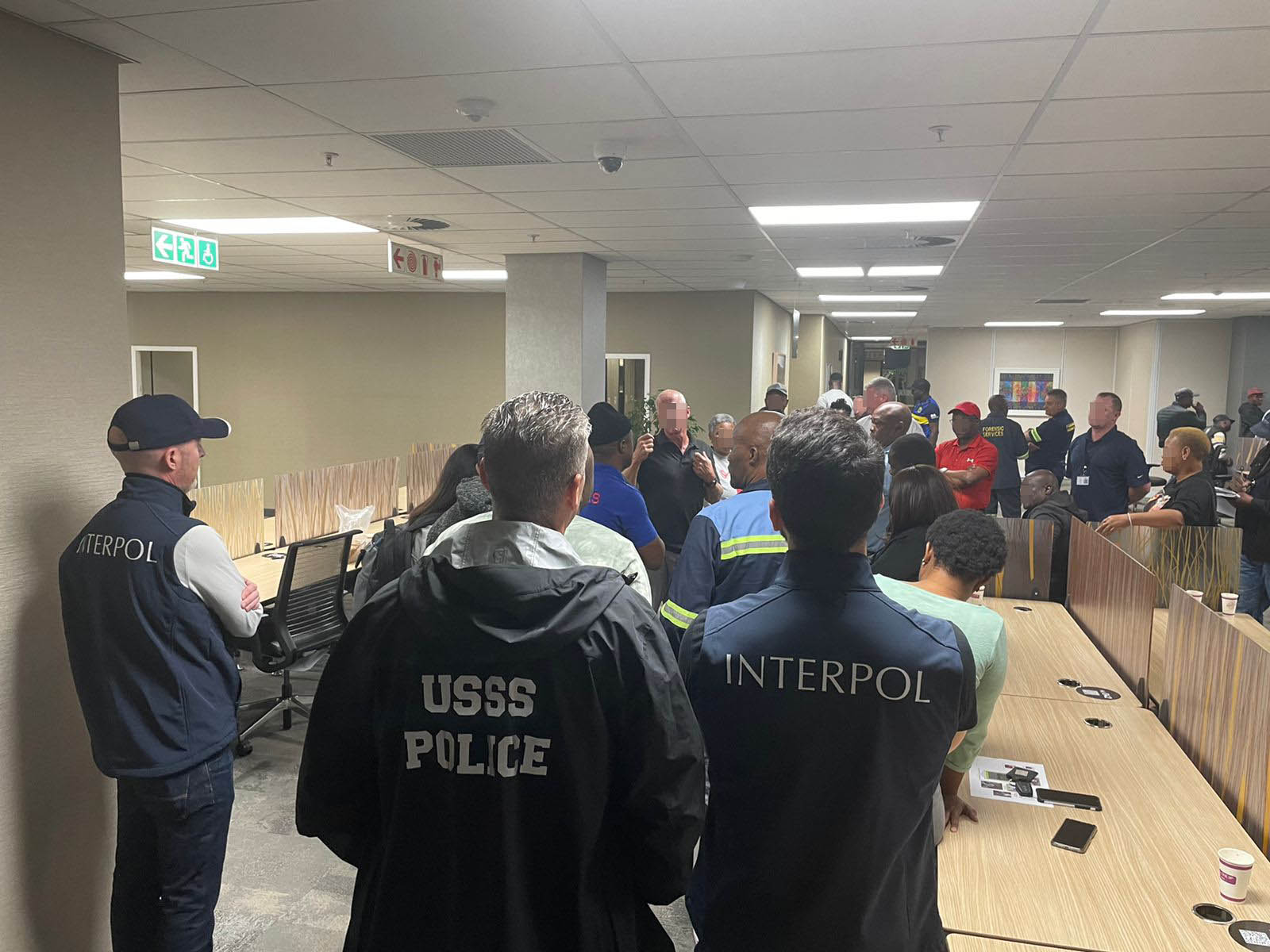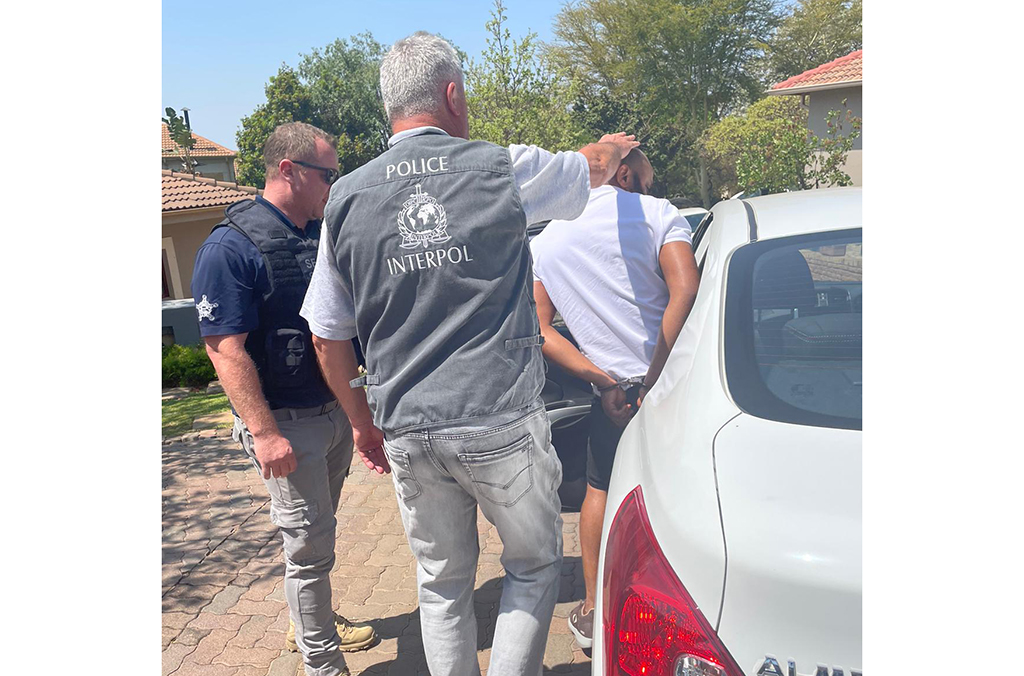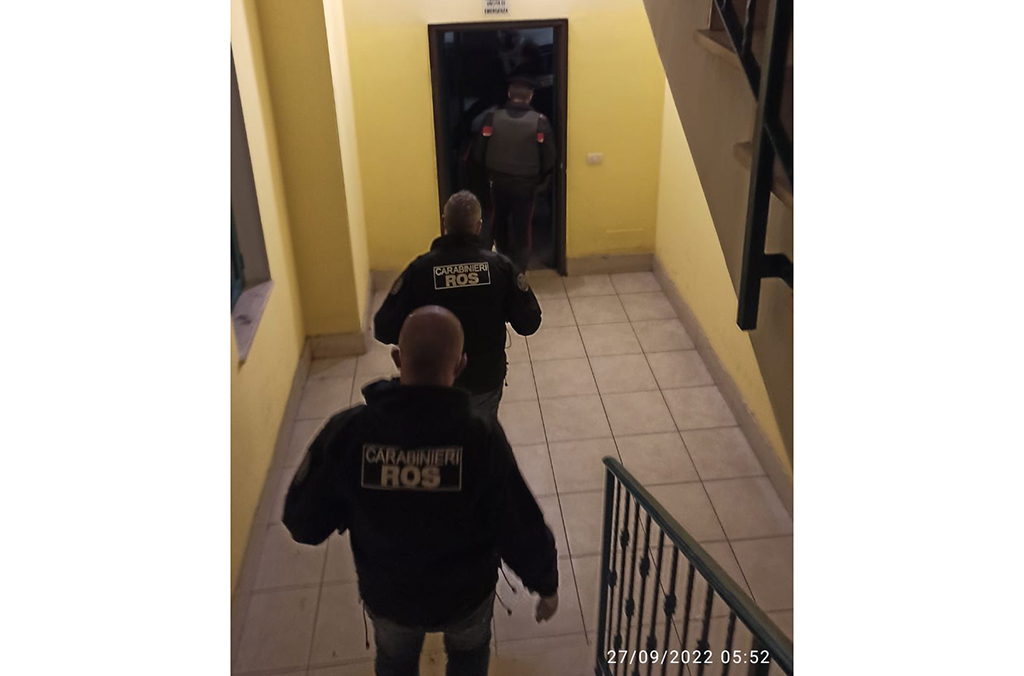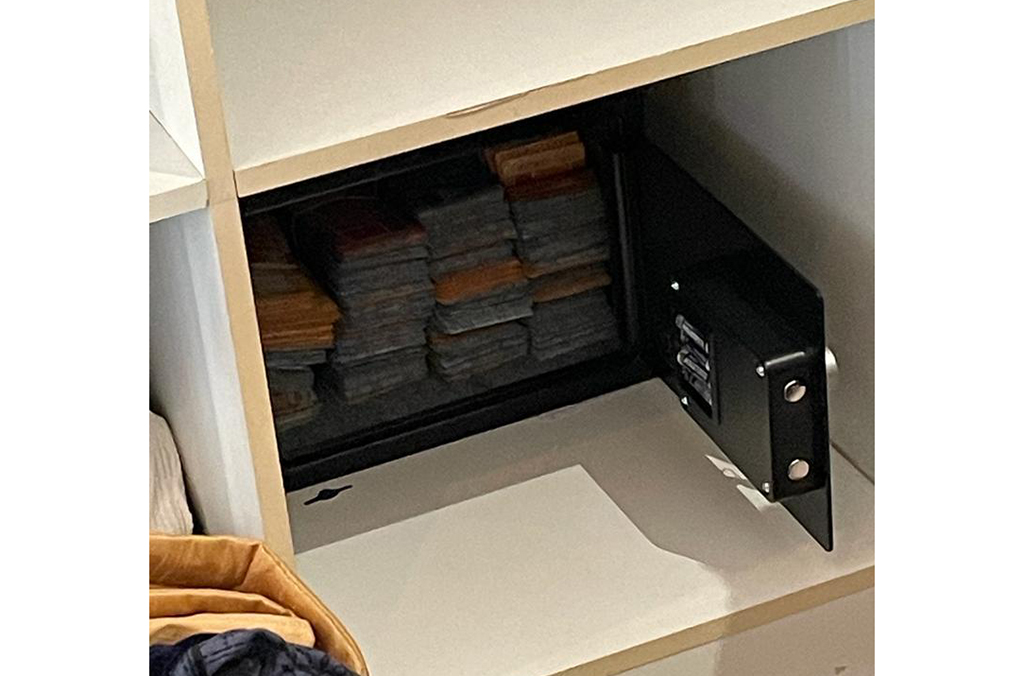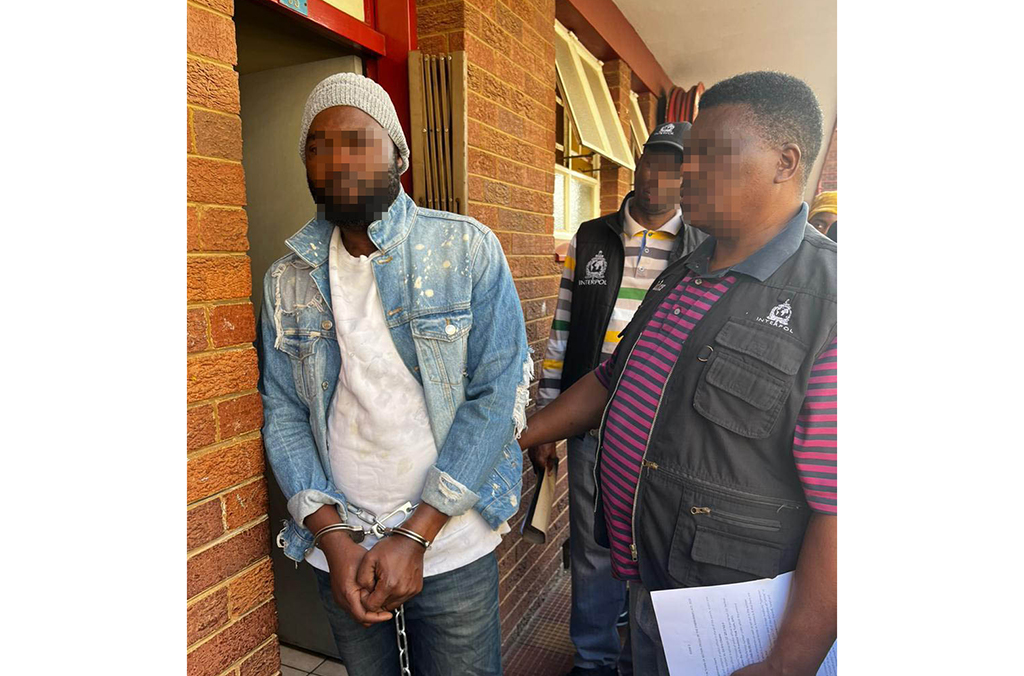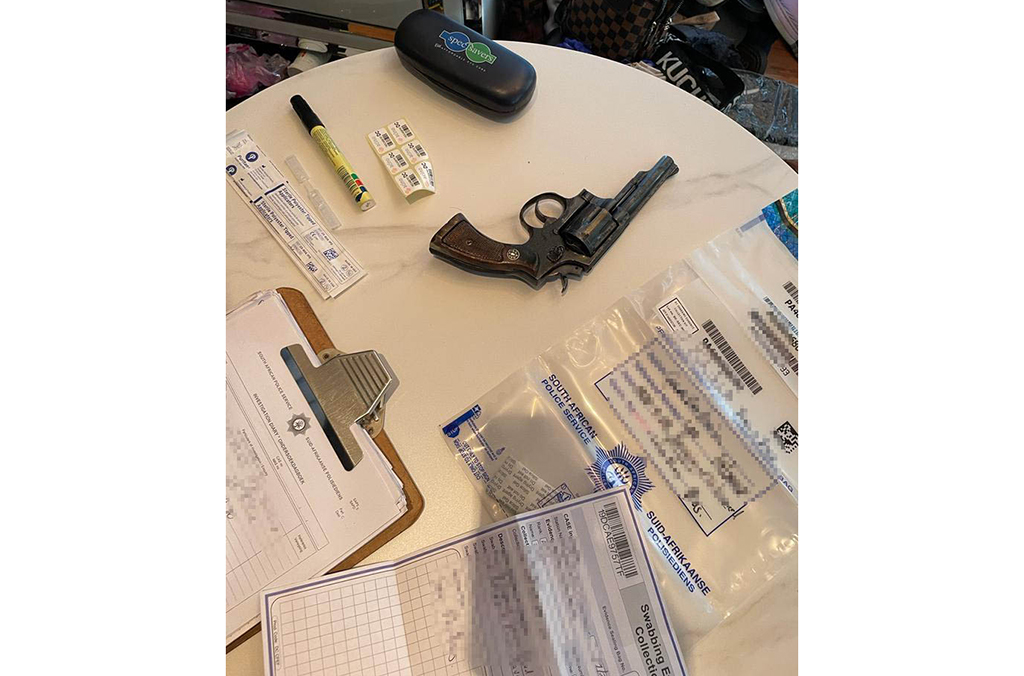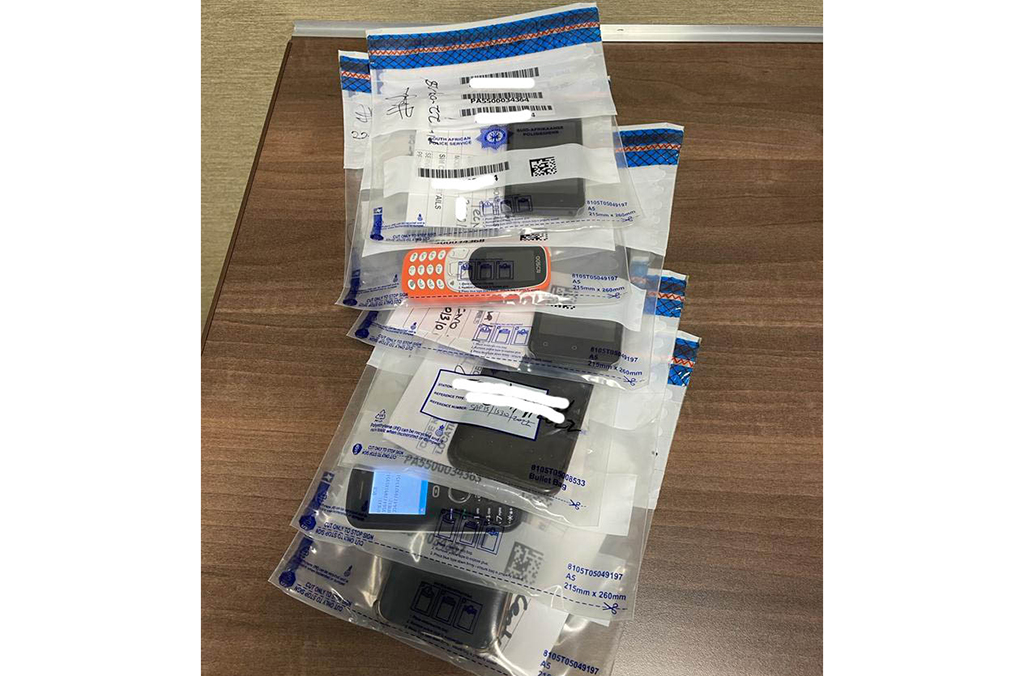- 9 premises searched in Dublin and Clare
- 11 persons arrested and detained under Organised Crime legislation
- 23 persons* arrested for the purpose of charging
- 62 charges of money laundering
- 3 organised crime offences
*(not included in INTERPOL data)
An Garda Síochána, in conjunction with INTERPOL and Law Enforcement Agencies across 13 countries on 4 Continents carried out enforcement activity under Operation JACKAL.
As part of Operation JACKAL a week of international Law Enforcement action was planned for the week commencing the 26th of September 2022. Led by the Garda National Economic Crime Bureau (GNECB) due to the volume of arrests/ detentions/ charges in Ireland, the period of action commenced in mid-August.
The searches and detentions were conducted by GNECB. The arrests for charging were conducted by local districts such as Tallaght, Tralee, Portlaoise, Navan, Limerick, Cork and Waterford.
An Garda Síochána operations were supported by two (2) seconded members from INTERPOL.
- Conduct searches for evidence
- Arrest, detain and question suspects
- Arrest and charge suspects where directions have been received from the DPP.
Operation SKEIN (Ireland)
Operation Skein, is an ongoing investigation into international Business Email Compromise (BEC)/ Invoice re-direct/ Romance fraud being committed from Ireland, and the laundering of the proceeds through accounts in this jurisdiction.
To date it is estimated that the following Garda investigative and enforcement activity has taken place, nationwide,
- 69 persons arrested under organised crime legislation
- 195 persons arrested for money laundering offences
- 135 persons charged
- 77 Arrests by GNECB
- 187 Arrests by Local District Investigators
Due to the volume of reports, cases, suspects, GNECB submit investigative packages to local districts for suspects to be arrested and investigated locally.
GNECB continues to work with financial institutions to put new systems in place for the reporting of money laundering and money mules. The co-operation of financial institutions has been second to none and the success of this operation could not have been achieved without this support.
Background:
Operation JACKAL (INTERPOL) is called Operation SKEIN in Ireland.
Operation SKEIN is a GNECB run investigation into an International Criminal Organisation which commit mainly BEC and Romance Frauds worldwide and launder the proceeds through networks of bank accounts in Ireland.
It is the assessment of GNECB/ INTERPOL that this Criminal Organisation is the Black AXE, a Criminal Organisation formed in West Africa in the mid-1970s and which is now operating worldwide.
This investigation began with a request for assistance from an EU country, via EUROPOL in early 2020. €1.1 million was stolen in a BEC fraud and laundered through Asia. The fake emails originated from Ireland. Electronic devices seized during this investigation, analysed in co-operation with International Law Enforcement indicated for the first time that this Criminal Organisation was operating from Ireland and not just laundering through Ireland.
To date, investigations can link just over €40 million as having been stolen and so laundered.
In excess of another €10 million laundered using the same MO is being considered as to whether it is connected to this Criminal Organisation. A previous GNECB investigation, called Operation JOGGLE, identified another €14 million as laundered in the same fashion.
It is the current assessment of GNECB that all these are connected which shows that over €64 million has laundered through Ireland.
The assessment of GNECB is based on briefings received from Police forces worldwide on the MOs used, intelligence received and the results of analysis and assessment of evidence gathered as part of this ongoing investigation. This evidence is from bank accounts uplifted, arrests of suspects and analysis of phones and other devices seized.
To date, over 40 devices containing valuable intelligence, information and evidence have been seized, downloaded, assessed and analysed. Assistance was sought from international Police Forces through EUROPOL to assist with the examination and analysis of these phones. GNECB have worked with INTERPOL on this investigation and have attended and briefed international Law Enforcement at operational meetings.
The bank accounts used to launder this €64 odd million money belongs to Irish residents who are recruited as money mules by what are known as mule herders. Money mules are recruited via social media or through friends or at parties. On some occasions, young people with drug debts pay off their drug debts by allowing their accounts to be used.
Money mules are also recruited in other EU countries and flown to Ireland where they are given false KYC (Know Your Customer) documents (Proof of address etc…), they open accounts and hand the accounts over to their herder.
Italian, British, Portuguese, Maltese, Dutch and Belgian IDs have been identified as used in this enterprise. Many of documents purporting to be from these countries are false but genuine documents have also been recovered.
For example, 13 different people from one specific Country flew to Ireland circa 2018 – 2020 and opened accounts through which over €2 million was laundered. Other accounts are opened by gang members using false IDs and false KYC documents. Businesses are set up by the gang, again using money mules.
New trends now involve Irish nationals being flown to other EU countries, given fake KYCs and told to open accounts. These accounts are then used to launder. We also see huge increases in Irish Resident on line banking accounts being used to launder the proceeds of frauds in Eastern and Central Europe.
Money mules are incorrectly being informed by their recruiters that once their financial account is used outside Ireland nothing can be done to them. This is incorrect. They are committing money laundering in Ireland and could also be extradited to international jurisdictions to face money laundering charges there as the primary offence occurred there.
Gardaí have identified at least 5 tiers to this Criminal Organisation:
- Bottom – money mule
- Next – mule herder
- Next – what we call a facilitator
- Next – operational director
- Top – strategist
- 838 money mules
- 63 herders / facilitators (these are very interchangeable)
- 50 operational directors
- 16 strategists
While GNECB has identified in excess of 800 money mules directly linked to this International Criminal Organisation, GNECB estimate that there are at least 4000 money mules linked to the investigation who have used Irish addresses. The vast majority are younger people in all corners of Ireland.
- Analysis of intelligence and information received from Banks
- Analysis of transfers in / out of suspects accounts
- Analysis of information obtained from Interpol and Europol
- Analysis of suspects phones
- Analysis of CCTV evidence
- Confidential information obtained
Lyon, France: Behind the headlines that emerged earlier this month on the arrest of two suspected online scammers in South Africa lies a global police operation coordinated by INTERPOL.
Codenamed Operation Jackal, the joint law enforcement effort mobilized 14 countries across four continents in a targeted strike against Black Axe and related West-African organized crime groups.
Operation Jackal marks the first time INTERPOL has coordinated a global operation specifically against Black Axe, which is rapidly becoming a major security threat worldwide.
Black Axe and similar groups are responsible for the majority of the world’s cyber-enabled financial fraud as well as many other serious crimes, according to evidence analyzed by INTERPOL’s Financial Crime and Anti-Corruption Centre (IFCACC) and national law enforcement.
In South Africa alone, the two suspects arrested were wanted for online scams that extracted USD 1.8 million from victims.
Lifeblood of organized crime
Over one coordinated ‘action week’ (26-30 September), police worldwide launched enforcement operations against individuals linked to the Black Axe group, arresting suspected criminal operators or money mules, raiding and shutting down premises and seizing assets related to ongoing cases.
Two INTERPOL operational support teams were also deployed to South Africa and Ireland respectively to help coordinate international law enforcement teams on the ground. In Italy, the Carabinieri made three arrests in Campobasso within the framework of the operation.
In total, the operation resulted in:
- EUR 1.2 million intercepted in bank accounts
- 75 arrests
- 49 property searches
- 7 INTERPOL Purple Notices, detailing criminal modus operandi
- 6 INTERPOL Red Notices, issued for internationally-wanted fugitives
“Illicit financial funds are the lifeblood of transnational organized crime, and we have witnessed how groups like Black Axe will channel money gained from online financial scams into other crime areas, such as drugs and human trafficking. These groups demand a global response,” said Stephen Kavanagh, Executive Director of Police Services, INTERPOL.
Lavish lifestyles
The immense quantity of assets seized, including 12,000 SIM cards, have provided new investigative leads for law enforcement, generating 13 analytical reports and allowing police to identify more than 70 additional suspects.
The lavish lifestyles and greed of many suspects – allegedly paid for by defrauding members of the public of their savings and other criminal activities – was on clear display at the scenes of their arrest. Various luxury assets were seized, including a residential property, three cars and tens of thousands in cash.
The operation also saw INTERPOL successfully deploy its new global stop-payment mechanism known as the Anti-Money Laundering Rapid Response Protocol (ARRP), currently in its pilot stage. Used within the framework of INTERPOL’s Global Financial Crime Task Force, the ARRP enables member countries to quickly intercept illegal proceeds of crime.
“The ARRP is a game-changer in the fight against global financial crime, where speed and international cooperation are crucial to intercepting illicit funds before they disappear into the pockets of money mules abroad,” said Rory Corcoran, Director of IFCACC. “INTERPOL’s Global Financial Crime Task Force has shown remarkable effectiveness in disrupting illicit financial flows, bringing together cyber and finance experts across sectors to track and cut off criminal money trails.”
No borders
Operation Jackal comes on the heels of INTERPOL’s first-ever roundtable engagement event with the Financial Action Task Force (FATF) in Singapore last month, where a new joint initiative to take action against illicit financial flows was launched between the organizations.
Up to USD 2 trillion in illicit funds are laundered through the global financial system every year, according to the United Nations, and is estimated that less than 1% of these funds are intercepted and recovered.
“Fraud is transnational, there are no borders,” said Detective Superintendent Michael Cryan of Ireland’s Garda National Economic Crime Bureau, which participated in Operation Jackal. “This is a great example of what can be achieved when international police forces cooperate by sharing intelligence, information and evidence. By working together with support from INTERPOL, the activities of these criminal gangs can be greatly disrupted, making it safer online for everyone.”
Operation Jackal was conducted under the aegis of Project CEFIN, which targets cyber-enabled financial crimes and is funded by the Republic of Korea.
The full list of participating countries in Operation Jackal are: Argentina, Australia, Côte d’Ivoire, France, Germany, Ireland, Italy, Malaysia, Nigeria, Spain, South Africa, the United Arab Emirates, the United Kingdom and the United States.
Help support Cork Safety Alerts by becoming a member – Click Here


